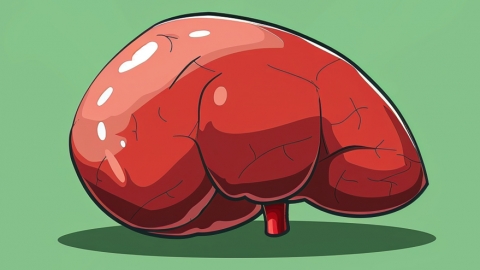What could be the cause of long-term yellow urine?
Persistent yellow urine is not necessarily a sign of disease; it may be caused by long-term insufficient water intake, prolonged consumption of pigmented foods, chronic urinary tract infections, chronic cholecystitis, or chronic hepatitis. If abnormalities occur, timely medical consultation is recommended. Detailed explanations are as follows:

1. Long-term insufficient water intake: Prolonged inadequate water intake leads to consistently concentrated urine, with persistently high concentrations of urinary pigments, resulting in persistently yellow urine. It is recommended to establish a regular hydration plan, ensuring sufficient daily water intake to gradually improve the concentrated state of urine.
2. Long-term consumption of pigmented foods: Long-term excessive consumption of foods rich in carotenoids, such as carrots, pumpkin, and mangoes, can lead to accumulation of pigments in the body, which are continuously excreted through urine, causing persistently yellow urine. Long-term excessive intake of such foods should be reduced, and dietary structure adjusted, allowing urine color to gradually return to normal.
3. Chronic urinary tract infection: Long-term bacterial infection of the urinary tract, with repeated inflammatory irritation, results in persistent presence of inflammatory secretions in the urine, causing persistently yellow urine, often accompanied by symptoms such as frequent urination and urgency. Treatment should follow medical advice to use medications such as amoxicillin clavulanate potassium tablets, cefdinir capsules, and Re Linqing granules, completing the prescribed course of treatment to fully control the infection.
4. Chronic cholecystitis: Chronic inflammation of the gallbladder over a long period leads to persistent poor bile excretion, with bilirubin continuously refluxing into the blood and being excreted through urine, causing persistently yellow urine, often accompanied by symptoms such as dull pain in the upper right abdomen and bloating. Doctors generally prescribe anti-inflammatory and bile-promoting tablets, ursodeoxycholic acid capsules, and cefixime dispersible tablets to prevent recurrent inflammation.
5. Chronic hepatitis: Long-term damage to the liver caused by viruses, medications, or other factors leads to persistent liver cell injury, affecting bilirubin metabolism. Urinary bilirubin levels remain persistently high, causing persistently yellow urine, often accompanied by symptoms such as fatigue and reduced appetite. It is recommended to use medications such as compound glycyrrhizin tablets, silybinin tablets, and entecavir capsules under medical guidance.
In daily life, maintaining good habits, avoiding urine retention, maintaining regular sleep patterns, eating a balanced diet, and undergoing regular urinary and hepatobiliary system check-ups are important. If persistent yellow urine does not improve or is accompanied by other discomforts, timely medical consultation is necessary to identify the cause and receive targeted treatment.






